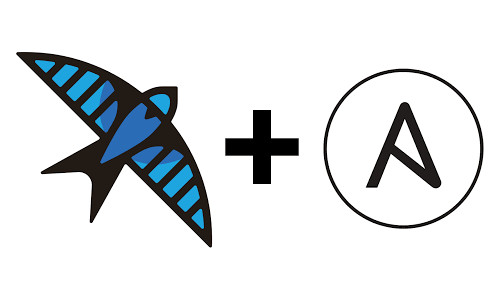In their attack on free software, Microsoft has launched a website which compares various aspects of Windows to its counterpart on Linux.
One of the latest videocasts compares getting Perl and PHP running on a webserver.
In the Windows screencast the author (who happens to be an Australian) says:
“In the past it was kinda difficult to set up Perl on Internet Information Services, now I’d actually argue it’s probably easier to set up Perl on IIS than it is to actually set it up on Linux.”
OK then, let’s watch both of his screencasts and see whether that is indeed true!
Excluding the tasks of installing Linux and Windows, installing the respective webserver, creating the Perl and PHP scripts themselves (which just print “$LANG is working”) and downloading the PHP/Perl install files (which you only have to do on Windows of course) here is the number of tasks required for each. As an aside, he is using Ubuntu Feisty Fawn, that’s SIX releases of Ubuntu ago.
Ubuntu – install and configure Perl
Total tasks = 7
Open terminal
Open "Terminal"
Install Apache Perl module
sudo apt-get install libapache2-mod-perl2
Type "y" to proceed
Restart Apache
sudo /etc/init.d/apache2 force-reload
Copy Perl script to cgi-bin directory
sudo cp testperl.pl /usr/lib/cgi-bin/
Make Perl script executable
sudo chmod a+x /usr/lib/cgi-bin/testperl.pl
Use Firefox to test
http://localhost/cgi-bin/testperl.pl
Windows – install and configure Perl
Total tasks = 34
Run Perl installer
Click "Run"
Click "Next"
Accept license agreement
Click "Next"
Click "Next"
Click "Next"
Click "Install"
Click "Finish
Open Command Prompt
Click "Start Menu"
Click "Command Prompt"
Make cgi-gin directory
mkdir C:\Inetpub\cgi-bin
Copy the script
cd Desktop
copy *.pl C:\Inetpub\cgi-bin
exit
Open IIS Manager
Click "Start Menu"
Click "Administrative Tools"
Click "Internet Information Services (IIS) Manager"
Configure Perl
Select "Perl CGI Extension" from "Web Service Extensions"
Click "Allow"
Create Virtual Directory for cgi-bin
Expand "Web Sites"
Right Click "Default Web Site"
Click "New -> Virtual Directory"
Click "Next"
Type name "cgi-bin"
Click "Next"
Set path "C:\Inetpub\cgi-bin"
Click "OK"
Click "Next"
Tick "Run"
Tick "Execute"
Click "Next"
Click "Finish"
Click "Close"
Use Internet Explorer to test
http://localhost/cgi-bin/testperl.pl
Perl Conclusion
If you live on planet Microsoft, then I guess you might deduce that Windows is indeed easier than Linux. Of course in reality that’s complete bunkum.
Now, let’s have a look at PHP, where our presenter says the following:
It’s as easy to install these particular services and languages on IIS as it is, or even easier to install them on Windows than is it on Linux.
Ubuntu – install and configure PHP
Total tasks = 5
Open terminal
Open "Terminal"
Install PHP mod for Apache
sudo apt-get install libapache2-mod-php5
Enter "y" to continue
Copy the php file
sudo cp testphp.php /var/www/
Use Firefox to test
http://localhost/testphp.php
Windows – install and configure Perl
Total tasks = 23 (or 42 if configuring cgi-bin)
Run PHP installer
Click "Run"
Click "Next"
Accept license agreement
Click "Next"
Modify path to "C:\PHP"
Click "Next"
Select "IIS CGI"
Click "Next"
Click "Next"
Click "Finish
Copy the script
Right click on php file
Select "Copy"
Click "Start Menu"
Open "My Computer"
Browse to "C:\"
Open "Inetpub" folder
Right click
Click "Paste"
Open IIS Manager
Click "Start Menu"
Click "Administrative Tools"
Click "Internet Information Services (IIS) Manager"
Confirm PHP is active
Select "Web Service Extensions"
Ensure "PHP: Hypertext Processor" set to "Allow"
Use Internet Explorer to test
http://localhost/cgi-bin/testphp.php
PHP Conclusion
Of course, he had already set up the cgi-bin virtual directory when he did Perl, so he’s getting that configuration for free. If you were configuring just PHP (or PHP first) this would take a total of 42 steps, instead of 23.
Conclusion, Conclusion
Either way, this guy sure has a funny idea of what “easy” means. I think it’s easy for him to make money from Microsoft by spreading lies about Linux.

5 thoughts on “Microsoft screencast shows Linux easier than Windows”
It’s easier to install PHP on Win2008/Win7 by using the Web Platform Installer. Reduces it to one download and a handful of clicks.
Be nice if they included Perl/Python into it though.
But I still prefer using FreeBSD, Apache, et al as the configuration is stored in text files which I can easily version, copy, and automate deployment for.
Maybe so, but in Linux it’s two steps:
Install the Apache mod
Copy the file
I can’t imagine how it’s ever going to be easier in Windows 🙂
I don’t think a click is equivalent to typing a line of text. Most people would find it easier to click something, even compared to copy-pasting the text. I do think that it’s easier for a sysadmin who is familiar with both systems to install and configure things on Debian than on Windows. The process of fetching the programs is much simpler on Debian, and the mostly non-interactive install / config is a benefit.
People would notice this benefit when setting up 20 machines with 50 applications, this needs only a single command (per machine) on Debian (or a short shell script to ssh into each in parallel and do the installation), whereas on Windows all that clicking to accept licenses is really going to get you down when you’re doing it 20*50 = 1000 times.
True. I just wrote down what he did in his screencasts. For example, one could use the a graphical package management tool such as synaptic to install the apache module, then use a GUI file manager to copy the file. It was interesting to see in his screencasts that he did use the command line on Windows..
-c
Ubuntu Yucking Yeisty Yawn
Splendid!